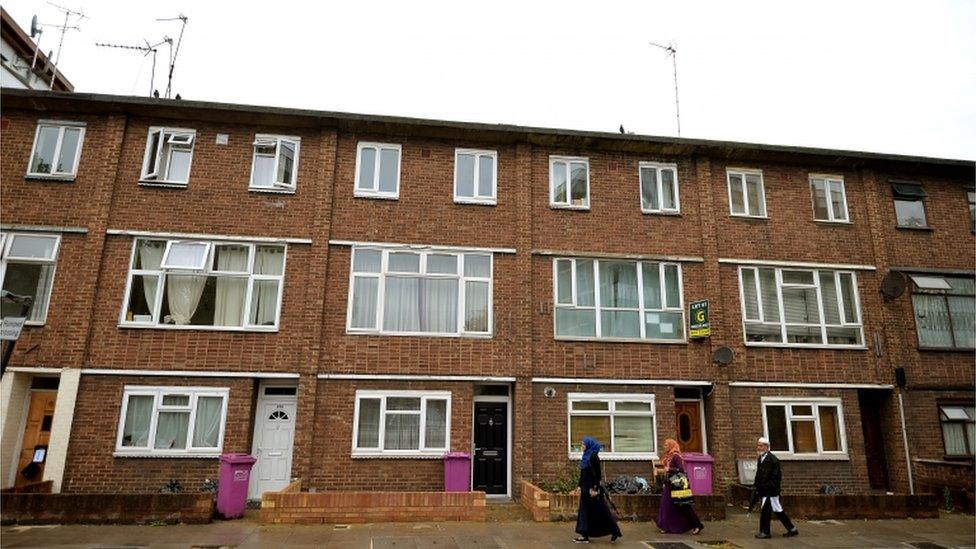Can social mobility work in a selfie culture?
- Published

Where does social mobility fit in with selfies and celebrities?
Everyone is in favour of social mobility. And everyone says it's a terrible thing that there isn't more of it.
But why does the aspiration for a fairer system never seem to arrive?
The annual report, external from the Social Mobility and Child Poverty Commission once again warns that the potential of clever youngsters from poorer backgrounds is not being fulfilled. Too many doors remain closed.
There are calls for education to bridge some of these gaps - as there have been since former Labour minister Alan Milburn began reporting on the issue when Gordon Brown was prime minister.
Mr Milburn warns of the risk of a divided society.
And whenever the topic is raised it creates a checklist of worries about a rising tide of private school privileges and complaints that public life is becoming a smug extension of Oxbridge student politics.
Celebrity excess
But isn't the bigger picture that while everyone signs up to the principle of social mobility, everything else in the economy and society is going in completely the opposite direction?

Megaphone diplomacy: Is narcissism more of our time than social mobility
Social mobility has its roots in an era of common causes, a post-war sense of shared intentions and waiting patiently for your turn. It was the idea that everyone deserved a fair chance.
How does that sit with celebrity culture and relentless self-promotion, where people are admired for excess and stockpiling wealth? Reality television is a dog-eat-dog war of egos. There's not a lot of room for holding open the door and inviting others to go first.
Whether it's priority boarding at an airport or a fast-track at the theme park, we're now a culture of queue jumpers. Pushing to the front is now seen as a social skill rather than a cause of embarrassment.
The selfie is the cultural statement of our time, marrying technology with narcissism. There are train carriages filled with people listening to headphones cut off from their neighbours. We travel together separately.
When shouting everyone else down is seen as a positive attribute - whether on Twitter or in the boardroom - the idea of helping others to progress fairly seems like a rather folksy piece of nostalgia.
Pay gap
The economy is also a widening gulf.
Chief executives of FTSE 100 companies receive pay that is on average 183 times the average full-time worker's earnings - it has climbed upwards while others have been stuck without pay rises.

Young people in Bethnal Green are much more likely to go to university now than a decade ago
And the language of social mobility often evokes a rather retro-version of the class system.
Access to university is often a key marker of upward mobility and figures published today from the admissions service show how much opportunity has become fragmented.
Young women are now 35% more likely to go to university than young men - and those living in London are 40% more likely to get places than those living in the north east.
These huge differences of gender, geography and race have complicated the broad-brush boundaries of social class.
And the university figures show this gap widening. In Bethnal Green in London's East End, young people are now 85% more likely to go to university than a decade ago. In Workington, they are 20% less likely than a decade ago. It's gone into reverse.
Shrinking middle class
Perhaps the most striking insight into this polarisation has come from the US, which has all the same anxieties about the faulty escalator of social mobility.
The Pew research group has published research showing that the middle class - that great engine of US values - is rapidly disappearing both in numbers and wealth.

Rising prosperity: How much the typical US family consumed in the 1950s.
The middle income families of America, once dominant, are being eroded at both ends, with growing numbers of the very poor and the very rich, external and declining numbers in the middle.
"The hollowing of the middle has proceeded steadily for four decades, and it may have reached a tipping point," says the study.
The middle-income, comfortable, steadily-richer, kids-at-college culture, which fed into much of western democracy, is a shrinking island, being replaced by extremes of affluence and poverty.
"The far edges of the income spectrum have shown the most growth," says the report, which tracks income being switched from the middle classes to high earners since the 1970s.
As Mr Milburn said about social mobility in the UK, there would have to be "massive" changes "if we're going to reconcile the social reality with the political rhetoric".